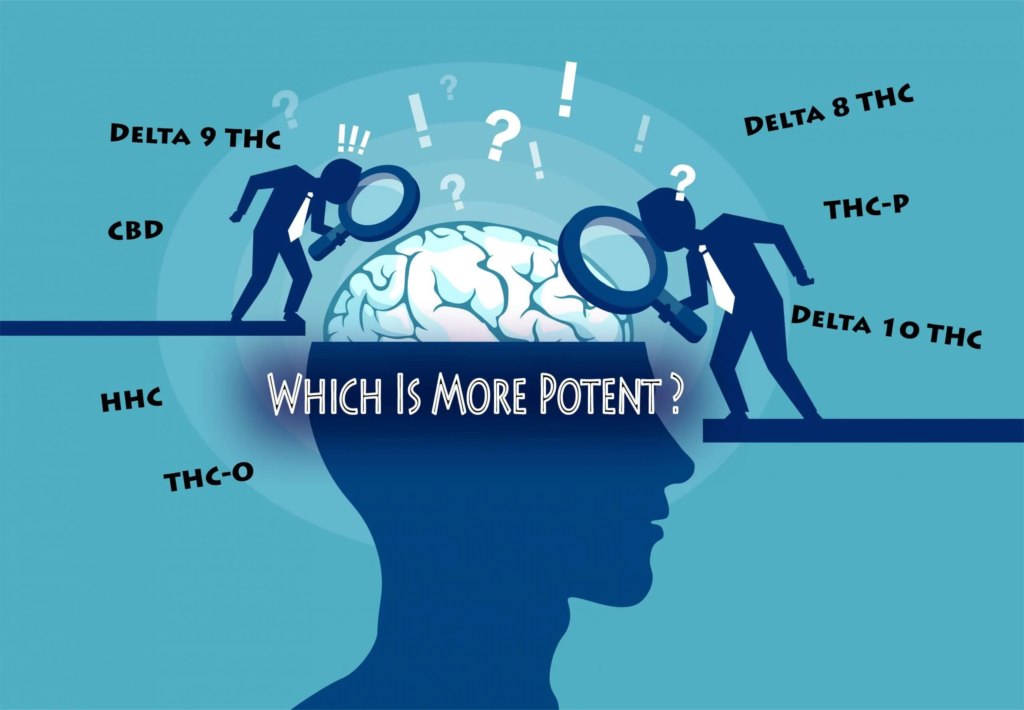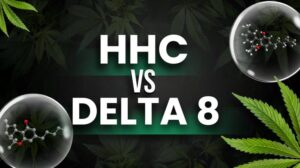HHC vs Delta 8: A Comprehensive Guide to Understanding These Two Cannabinoids
Introduction
As the hhc vs delta 8 cannabis industry continues to evolve, new cannabinoids are emerging, gaining attention for their unique effects. While THC and CBD remain the most recognized compounds, others like HHC (hexahydrocannabinol) and Delta 8 THC are becoming popular alternatives. But what makes these cannabinoids stand out? In this guide, we’ll dive deep into the hhc vs delta 8 differences between HHC and Delta 8, their effects, legality, and how they compare in the market.
What Are Cannabinoids?

Cannabinoids are the chemical compounds found in cannabis that interact with the body’s endocannabinoid system. This system plays a hhc vs delta 8 crucial role in regulating mood, pain, appetite, and other functions. While there are over 100 different cannabinoids in the cannabis plant, THC (tetrahydrocannabinol) and CBD (cannabidiol) are the most well-known. However, as research expands, cannabinoids like HHC and Delta 8 are gaining attention due to hhc vs delta 8 their potential benefits and distinct effects.
Both HHC and Delta 8 are derived from hemp, but their chemical structures set them apart from each other and other cannabinoids. This difference plays a hhc vs delta 8 critical role in how they affect the body, which we will explore in detail throughout this article.
What Is HHC (Hexahydrocannabinol)?
HHC, or Hexahydrocannabinol, is a hydrogenated form of THC. It’s created by adding hydrogen molecules to THC, a process called hydrogenation. This hhc vs delta 8 modification makes HHC more stable and resistant to oxidation, which means it has a longer shelf life than THC. Although HHC is naturally present in small amounts in cannabis, most HHC products on the market are synthetically produced through this hydrogenation process.
The effects of HHC are often described as a blend of THC and Delta 8, with users reporting a mild to moderate high. HHC is known for inducing a feeling of relaxation hhc vs delta 8 without the overwhelming psychoactivity commonly associated with Delta 9 THC. This makes it appealing for those looking for a controlled, balanced experience.
What Is Delta 8 THC?
Delta 8 THC is a naturally occurring cannabinoid found in the cannabis plant, though it exists in much smaller concentrations than Delta 9 THC. Due to its limited presence, Delta 8 is often synthesized from CBD extracted from hemp. Delta 8 is structurally similar to Delta 9 THC but with slight differences that impact how it interacts with the body’s receptors.
Consumers often describe Delta 8 as offering a smoother, less intense high compared to Delta 9. It provides a gentle euphoria, making it a popular choice for those seeking relaxation without the anxiety or paranoia that can sometimes accompany Delta 9 THC consumption. hhc vs delta 8 In short, it’s known as the “milder cousin” of Delta 9 THC.
Comparing HHC and Delta 8: Chemical Structure and Origins
When it comes to comparing HHC and Delta 8, the first difference lies in their chemical structures. HHC is a hydrogenated form of THC, meaning it has additional hydrogen hhc vs delta 8 atoms that make it more stable. This process makes HHC less susceptible to degradation from heat and light, making it more durable than other cannabinoids.
Delta 8, on the other hand, is a naturally occurring isomer of THC, meaning it shares a similar chemical structure to Delta 9 but with a slight difference in the placement of a hhc vs delta 8 double bond. This subtle distinction is enough to alter its psychoactive effects, resulting in a less potent high compared to both HHC and Delta 9.
Psychoactive Effects: HHC vs Delta 8
The psychoactive effects of HHC and Delta 8 are one of the key areas where consumers notice a difference. HHC tends to produce a balanced, mild high. It offers hhc vs delta 8 the relaxation and euphoria associated with THC but without the overwhelming intensity. Users often report feeling calm and at ease, making it ideal for managing stress or enjoying social situations.
Delta 8, in contrast, delivers a much milder psychoactive effect. It’s often described as giving a “clear-headed high,” allowing users to remain functional and focused. hhc vs delta 8 is popular among individuals who want to experience the benefits of THC without the heightened sensations of anxiety or paranoia that can sometimes accompany stronger cannabinoids.
Potential Medical Benefits of HHC vs Delta 8
HHC and Delta 8 both show promise for potential medical applications, although research is still in its early stages. HHC has been noted for its anti-inflammatory properties, hhc vs delta 8 which may help reduce pain and swelling. Additionally, its relaxing effects make it a candidate for managing anxiety and stress.
Delta 8, conversely, is known for its anti-nausea properties and is often used to alleviate nausea and vomiting in patients undergoing chemotherapy. It also has potential hhc vs delta 8 as an appetite stimulant, similar to Delta 9 THC, but without intense psychoactive effects. Both cannabinoids offer therapeutic benefits, though their effectiveness and safety require further scientific study.
Side Effects and Risks of HHC and Delta 8
Like all cannabinoids, HHC and Delta 8 come with potential side effects. HHC users may experience dry mouth, red eyes, and mild drowsiness. However, since HHC is hhc vs delta 8 relatively new to the market, there is limited data on its long-term side effects. Caution is recommended, especially when trying higher doses.
Delta 8’s side effects are generally mild and include fatigue, dry mouth, and occasional dizziness. Since it is a weaker form of THC, it is less likely to produce the intense hhc vs delta 8 anxiety or paranoia that can be associated with Delta 9 THC. However, overconsumption of Delta 8 may still lead to discomfort, so starting with small doses is advised.
Legal Differences Between HHC and Delta 8
The legality of HHC and Delta 8 is a complex issue, as laws surrounding these cannabinoids vary across regions. In the U.S., Delta 8 has enjoyed a legal grey area due hhc vs delta 8 to the 2018 Farm Bill, which legalized hemp-derived products containing less than 0.3% Delta 9 THC. However, individual states have imposed their restrictions, making it illegal in certain areas.
HHC’s legal status is even murkier. As a hydrogenated form of THC, it may not fall under the same legal protections as Delta 8, and its synthetic production raises additional hhc vs delta 8 legal concerns. Consumers should check their local laws before purchasing or consuming either cannabinoid.
HHC vs Delta 8: Product Availability and Consumption Methods
HHC and Delta 8 products are widely available in various forms, including edibles, tinctures, vapes, and concentrates. HHC products are hhc vs delta 8 often marketed as a stronger, longer-lasting alternative to Delta 8, while Delta 8 is promoted as a milder, more functional high.
When choosing between HHC and Delta 8, it’s essential to consider your personal preferences and tolerance. If you’re looking for a moderate experience, Delta 8 might be your best bet. On the other hand, if you want something with more potency hhc vs delta 8 and longevity, HHC could be the better choice.
Consumer Experience: HHC vs Delta 8
Consumers report varied experiences with HHC and Delta 8. Many appreciate HHC for its balanced effects, describing it as the perfect middle hhc vs delta 8 ground between a strong and subtle high. Others enjoy Delta 8 for its clarity and mild euphoria, allowing them to relax without losing control.
The right cannabinoid for you depends on your goals—whether you’re seeking a calming experience or a more profound sense of euphoria. Both HHC and Delta 8 offer unique benefits, and personal experimentation is the best way to determine hhc vs delta 8 which one suits you best.
Conclusion
In summary, both HHC and Delta 8 offer distinct experiences that appeal to different types of cannabis consumers. While HHC delivers a more potent, hhc vs delta 8 balanced high, Delta 8 is known for its milder, clear-headed effects. Understanding their differences in terms of impact, legality, and product availability can help you make an informed choice based on your needs.
FAQs
- What is the main difference between HHC and Delta 8 THC?
- HHC is a hydrogenated form of THC, offering a more potent, stable high, while Delta 8 delivers a milder, clear-headed experience.
- Is HHC stronger than Delta 8?
- Yes, HHC is generally considered stronger than Delta 8 due to its hydrogenated chemical structure.
- Can I pass a drug test after using HHC or Delta 8?
- Both HHC and Delta 8 can trigger a positive drug test, as they are forms of THC.
- Are HHC and Delta 8 legal everywhere?
- The legality of both cannabinoids varies by region, with Delta 8 being legal in some areas and HHC existing in a legal grey zone.
- Which cannabinoid is better for anxiety or sleep: HHC or Delta 8?
- Delta 8 is often preferred for anxiety and sleep due to its milder effects, while HHC may be too potent for these purposes.








Post Comment